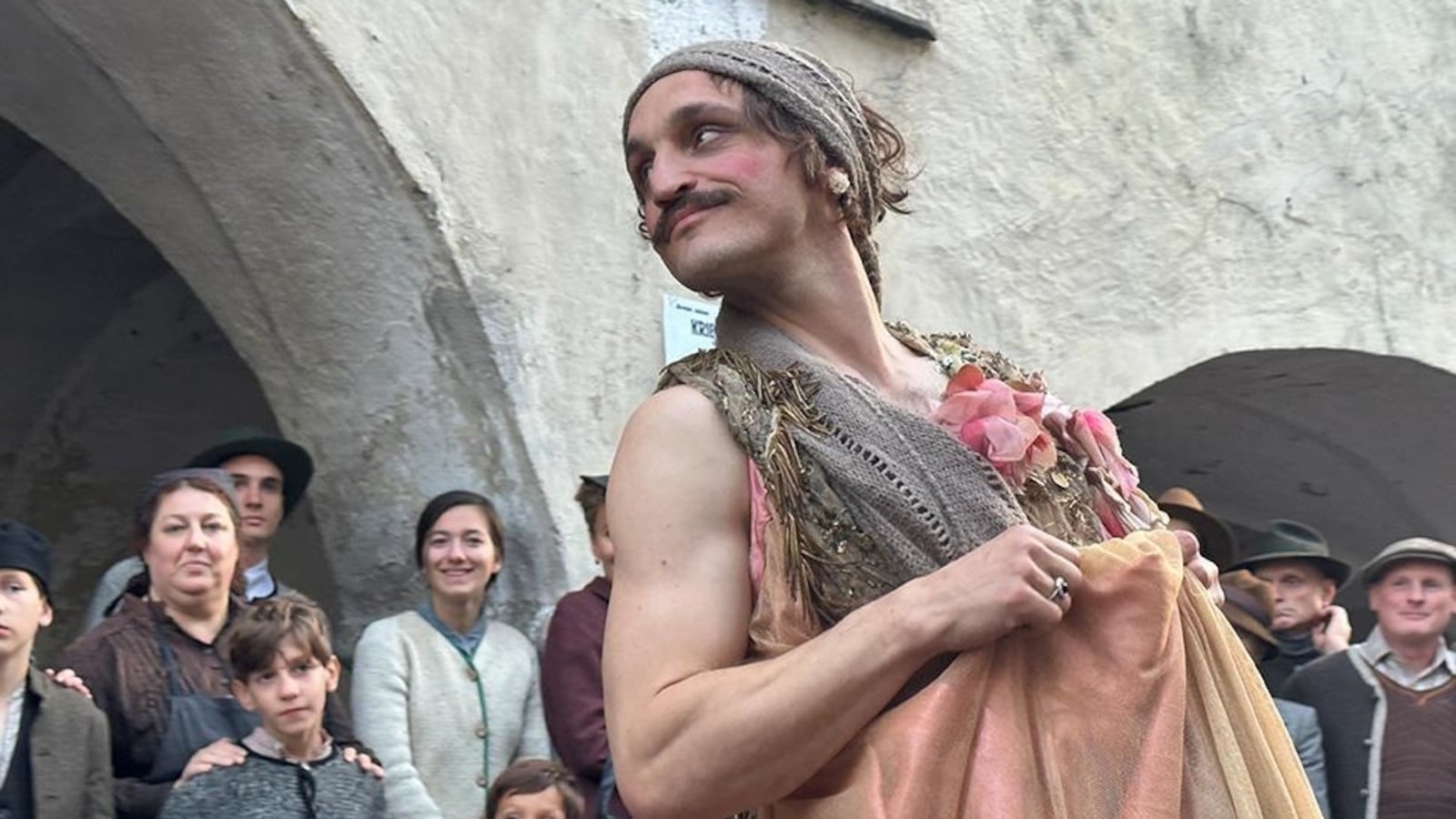VENICE, Italy—Lubo builds a sweeping story of loss and trauma out of the real-life scandal of the abduction of thousands of children from Yenish traveler communities in Switzerland. Though this shocking practice took place for nearly 50 years from the 1920s onwards, the new film by Giorgio Diritti focuses on World War II and its immediate aftermath, by telling the story of an itinerant performer whose children are stolen when he is drafted for military service in 1939. What follows is the tale of a man utterly broken and irrevocably changed by his circumstances, who searches for his children under an assumed identity and integrates himself into the upper echelons of Swiss society off the back of stolen property.
Lubo, which premiered Thursday at the Venice Film Festival, is built around another magnetic central performance by Franz Rogowski (Passages) in the title role. He portrays the titular character Lubo as a gracious, impish kind of live-wire—a man whose love of performing is coded into his DNA. Rogowski is a highly physical actor, so he grounds Lubo in a whole register of performance, showing us somebody who is musical, a shapeshifter, and can captivate spectators. Once forcibly enrolled in Switzerland’s military—and discovering the loss of his wife and children—Lubo is brought crashing to earth. Rogowski shows the impact of that betrayal in body language that has been extinguished somehow; a dimming of the light behind his eyes. Yet vestiges of his former character remain, in muscle memory of dancing, clowning, or playing the accordion: lovely scenes of Lubo artlessly playing with a marble ball, or skimming stones on a lake, briefly reveal the carefree man of earlier times.
In later stages of the film, Lubo (going under the guise of Bruno Reiter, a Jewish man whose identity and property he has stolen in a truly shocking scene, filmed soberly by Diritti, at a remove from the action) will use his skill for performance to manipulate various high society women, either out of an obscure sense of revenge or to get him closer to investigating his children’s disappearance. All of this is so well rendered by Rogowski, who on top of all the role demands of him, is required to speak Yenish, Italian, French, and his native German. His performance even extends to driving a car: Lubo has only ever driven a horse and cart, and has to teach himself to drive. He has been told that the gears are trotting, cantering, and galloping; that the brake is the reins and the accelerator the whip. He judders along uncertainly, lurching in fits and starts; later, when Lubo is a man of money, a Don Juan of polite society, his driving turns smoother, but you can still, I think, detect the hours of practice and see someone taking on a role.
This is virtuoso stuff, and it’s clear that Lubo would be nothing without a lead actor of that sophistication and versatility. The accompanying filmmaking is proficient, while somewhat lacking heat and verve. Take the cinematography, with unadorned camera-work casting a timid eye over a burnished autumnal palette: this makes for an agreeable, classical film, but is perhaps not totally suited to a story of such total desolation. The whole project is a look at the devastation of war and the generational trauma wrought by white supremacist eugenics, through the experiences of one pained, ambiguous man. So it’s reasonable to hope for a little more formal investment from the film itself, which is just too polite, too prettifying in its aesthetic.
In fact, although Rogowski does sterling work in the central role, Lubo could even stand to ask more of him—he’s got the chops for it, after all. There is a strange kind of restraint at play here, meaning that the film’s big shocks don’t quite register. In part, that may be due to an edit that is a smidge too stately, taking ample time to build up character and narrative, but not cutting smartly to the big knocks that should punctuate this story like hammer blows.
Nevertheless, Lubo is a watchable, handsomely mounted project, showing particular attention to set design and costuming, two aspects of the movie that bolster its classical instincts. Over the course of three hours, the story could perhaps do with a slight trim in the later stages, but the film is admirably fat-free over that extended time-frame. Rogowski’s performance aside, supporting actors are good, although there is a disconcerting emphasis from the casting director on people with a specific kind of angelic, innocent mien. Lubo ends with a few of those faces, staring down the camera in reproachful silence, by which time the movie seems to have settled for being merely a “message” film. That’s no small ambition, but a gem like Franz Rogowski requires a more opulent setting.
Liked this review? Sign up to get our weekly See Skip newsletter every Tuesday and find out what new shows and movies are worth watching, and which aren’t.






